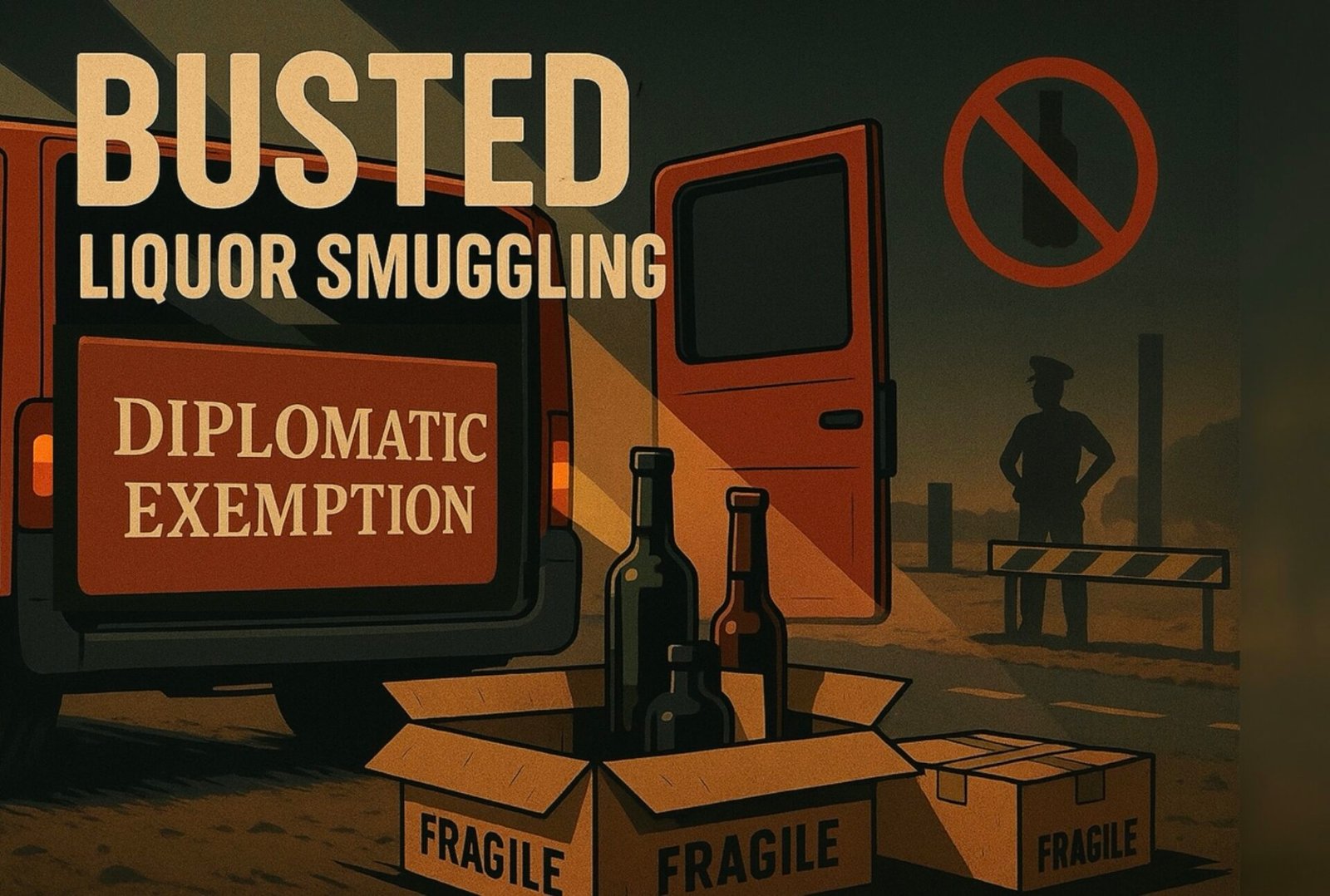ISLAMABAD: A high-level smuggling racket involving diplomats, clearing agents, and customs officials has been unearthed, exposing how Pakistan’s diplomatic import exemption system is being manipulated to bring in duty-free liquor, cosmetics, and food items worth billions of rupees.
According to sources, a senior official, identified as Dr. T. , allegedly secured a high-paid posting at the Ministry of Foreign Affairs (MoFA) and used his influence to obtain exemptions for liquor imports. Instead of beer and wine, as permitted under diplomatic privileges, whiskey consignments were cleared through Karachi Port. Customs officials reportedly failed to move the containers, even though they were sealed and fitted with trackers from an FBR-approved company.
Clearing agents, meanwhile, concealed import data to avoid scrutiny, enabling the consignments to disappear into the black market. Similar cases have emerged in Lahore, where exemptions allegedly generated for Lebanese Embassy sold in black market and were used by smugglers to import liquor under diplomatic cover.
Under existing rules, whenever an embassy or diplomat is issued an exemption for importing liquor, cosmetics, or food, a copy of the exemption must be shared with the Federal Board of Revenue’s (FBR) online systems, WeBOC and PSW, as well as the Directorate General of Customs Intelligence and Investigation in Islamabad. Diplomats are required to make payments directly from their personal or embassy accounts, not through smugglers using hundi or hawala networks.
The consignments, duty-free and meant exclusively for diplomats stationed in Islamabad, are declared at Karachi ports. However, once containers exit Karachi, many never reach the embassies. Insiders say that containers are diverted midway, fueling a thriving black market in alcohol.
To plug the loopholes, experts suggest that diplomatic containers should not be cleared in Karachi. Instead, they should be transported under a bonded cargo system directly to Islamabad’s dry port, and then dispatched to embassies, with proper receipts confirming delivery to diplomats. Containers should remain under FBR-approved tracker seals and be checked at every customs checkpoint en route.
It has also been observed that smugglers prefer whiskey imports over beer or wine, adjusting declared weights to match shipment documents while maximizing profit margins.
Officials say the Ministry of Foreign Affairs, in coordination with its Protocol Section (Section IV), must commission a special audit through independent firms such as KPMG or Müller & Phipps to determine how many diplomats availed exemptions, whether the imports were authorized, and if the liquor and food were actually consumed by diplomats or diverted to commercial markets.
If implemented, such measures could curb rampant misuse of diplomatic channels, which sources estimate is causing billions in revenue losses annually while emboldening a powerful smuggling mafia operating with impunity.


